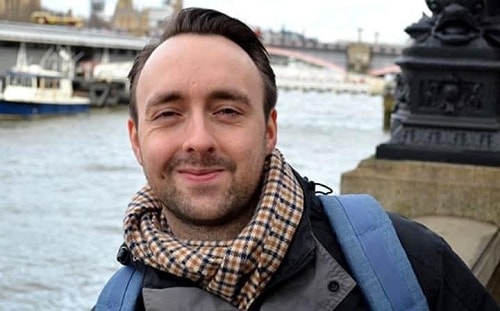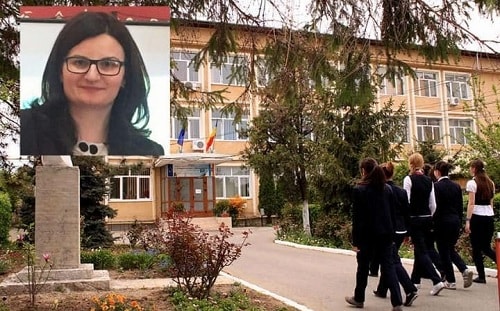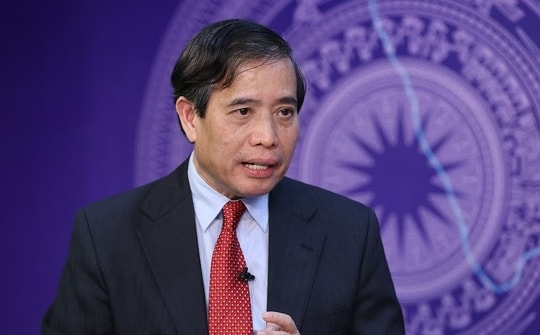Challenges for teachers around the world
The key to educational outcomes is teacher quality. Yet in many countries around the world, teachers face many challenges.
Tomorrow, the Organisation for Economic Co-operation and Development (OECD) will release the latest PISA results based on tests taken in 2015. This is the Programme for International Student Assessment (PISA), a global study conducted every three years to assess the ability of 15-year-olds in Mathematics, Science and Reading (with 72 participating countries).
When the last PISA results were released in 2013 (based on tests taken in 2012), Shanghai and Singapore were praised around the world for their high rankings. Vietnam ranked 17th in Mathematics, 19th in Reading and 8th in Science out of 65 countries that took the test.
According to Andreas Schleicher, director of education and skills at the OECD, teachers are the key to making the difference. "East Asian countries certainly have other options. If they have to choose between smaller class sizes and better teachers, they definitely choose teachers," he said.Schleicher added that education spending per student accounts for only 20% of a country's educational outcomes.
In the spirit of honoring the teaching profession as the OECD PISA results are about to be announced, tyeahTelegraphin conjunction with the British Council, interviewed teachers around the world about the challenges they face in their profession. The article was published in the Telegraph on December 5.
1. What was the best moment as a teacher?
Sedat Dagtekin, Türkiye (24 years in the profession)
I was a high school math teacher. In 1994, while I was writing on the board, a student in the back row stood up and made a funny joke to make his classmates laugh. The student thought I couldn't see, but the board reflected his image. I didn't turn around, but told him to sit down and continue working on the problem. He was shocked, so he slowly raised his hand to see if I could detect it. I said, "Do you know that some teachers have eyes in the back of their heads? Why are you still raising your hand?" The student was completely captivated.
Laura Giugnini, 55, Italy (28 years in the profession)
I am a high school English teacher. The special moment of my teaching career that I will always remember was the final exam of a special student. He was born deaf and was shy to speak, even in his mother tongue. However, he loved English and really wanted to learn this language. Instead of choosing the written exam, he chose the oral exam. After the exam, everyone was so emotional, no one could say a word. I am still very proud of that student.
Natalya Penner, Kazakhstan (31 years in the profession)
I taught English from elementary to high school. Years ago, a student told me that she couldn’t understand why teachers would choose a job with such low pay and so many challenges. The student’s mother was an accountant, working only half the day but earning a lot of money. I suddenly thought about why I chose this profession, then forgot about it.
A year later, I went on a field trip to another city with a group of students, including the student mentioned above. When I arrived at the train station, I was unexpectedly greeted by many former students. Every night, people came to visit and chat with me at the hotel where I stayed. Only then did the student say that he now understood what it meant to be a teacher.
Fareda Etalla, South Africa (25 years in the profession)
Many years ago, I taught with a teacher who regularly received walnuts from a first grader. These nutritious walnuts were always placed in a small bag and she loved them. One day, she asked him where he got the walnuts. He said that his father bought them for his grandmother every Sunday, but she had no teeth to eat them, so he always saved them for his teacher. I still remember the happy look on her face as she told the story.
2. What is the biggest challenge facing education in your country?
Stephan, 30, Germany (4 years in the profession)
 |
Stephen teaches 26 45-minute lessons a week in Berlin, Germany. German children attend school 7 to 8 hours a day. |
In Berlin, the number of students is gradually increasing. Many families are moving to Berlin, including refugees. My school is lucky to have a very open-minded student body, ready to help newcomers. There are also “welcome classes” and after-school clubs to help students learn German faster.
Dr. Sophia Kitsou, Greece (20 years in practice)
The economic crisis has had a serious impact on education. A third of the education budget has been cut. But money is not the only problem. Education reform in Greece has been heavily politicized. Reforms are imposed from the top down, but only teachers really understand what needs to change from their own experience in the classroom.
Ma Zhi, 26, China (6 years in the profession)
In my opinion, the biggest challenge is how to reform education in a global context. Currently, in China, most schools do not have the opportunity to exchange teachers or students with other cultures, countries or regions. As a result, many students score very well in exams but are unemployed. Teachers teach very well from textbooks but do not know how to inspire students, empower them to learn independently and be creative.
Olga Sapukhina, 29, Russia (8 years in the profession)
I believe that every school should be an island of peace in a turbulent world. Anyone who walks through the school gates should feel safe. For this reason, change in education needs to be carefully considered. That is the biggest challenge.
Francis Muema, 43, Kenya (18 years in the profession)
I currently teach at Kajembe Secondary School, on the outskirts of Mombasa, along the Indian Ocean coast. Many of the students come from disadvantaged backgrounds, most come from dysfunctional families and some are orphans. My classes range from 20 to 70 students.
One of the most difficult things for me is the lack of teaching and learning materials, it is difficult to make students understand the subject. Poverty and lack of support from the school makes things worse.
3. What is the hardest thing about being a teacher?
Stephan, 30, Germany (4 years in the profession)
Time management is an issue, especially in Berlin where we are required to teach 26 lessons a week. A few years ago it was 24 lessons and before that it was even less. As a result the weekly workload can be 60 hours or more between lesson preparation, marking, administration, advising and tutoring students.
Snezana Ciganović, 56, Serbia (33 years in the profession)
One difficulty is the constant reform and uncertainty we face every time there is a new administration.Everyone wants reform and is aware that the education system is outdated, but there is no clear strategy.Also, with all the respect for children's rights, people seem to have forgotten that rights also come with obligations. And teachers have human rights too!
Alaa 'Saleh Al-Dasouqi, Hitteen refugee camp, Jordan (7 years in the profession)
SThe number of students in a class is too large, which makes our task more difficult. Another concern is the nature of foreign language teaching. English does not have real opportunities to be used outside the classroom, which actually slows down the learning process.
Fareda Etalla, South Africa (25 years in the profession)
When managing a classroom with too many students and little support, discipline is a challenge because children come from completely different backgrounds and cultures.The language children are taught in is mostly not their mother tongue, so the learning barrier is huge.
4. How are teachers respected in your country?
Stephan, 30, Germany (4 years in the profession)
In general, teachers have a higher social status than in other European countries. This is reflected in their pay. However, there are also negative stereotypes about teachers regarding their working hours and the number of holidays they receive.
Hana Kuchyňková, Czech Republic (28 years in the profession)
Parents do not encourage their children to become teachers. Teachers' salaries are not competitive. Politicians only respect teachers before elections.
Moise Alina Elena, 31 years old, Romania (8 years in the profession)
 |
Moise Alina Elena works for a public school in Ploiesti, Prahova County, Romania and teaches 18 lessons per week. |
Teachers are gradually losing social status, reflected in low salaries, difficult relationships with parents, overloaded programs, lack of quality educational resources, and bureaucracy.
Laura Giugnini, 55, Italy (28 years in the profession)
Teaching is a profession that is not highly regarded because it is not paid well and people think that teachers do not work hard. People tend to judge without actually experiencing it to judge it properly. There is a lot of criticism of teachers and the education system, but there is not much pressure on the government to support and improve it.
Natalya Penner, Kazakhstan (31 years in the profession)
There have been many changes in my country over the years to change the situation of teachers.We have a lot of support from the Government and the Ministry of Education and Science, many professional competitions with big prizes. In 2012, I won a competition and received the title "Best Teacher of the Year" and a prize of 10,000 USD.In October we celebrate Teachers' Day and portraits of the best teachers are hung on the streets.The government has a special program for young teachers to work in the countryside, including financial support, a house and a higher salary.
5. Why do you want to become a teacher?
Ma Zhi, 26, China (6 years in the profession)
Simply because I have met so many great teachers in my life, and of course bad teachers too.I come from a low-income working-class family. My parents worked very hard to pay for my education, so they couldn't afford to buy me clothes. I still remember when I was in primary school, I always wore a brown sweater that my mother knitted for me. The teachers made fun of me in front of the whole class.After class, I told my best friend that if I could be a teacher, I would always love my students.
Youssr Chediac, Lebanon (20 years in the profession)
I am fascinated by how one person can influence and change the lives of others. Becoming a teacher is a way to touch the lives of many and encourage them to appreciate learning, explore and enhance their potential.
Olga Sapukhina, 29, Russia (8 years in the profession)
A teacher is an actor, a writer, a doctor, a lawyer, a politician, a painter, and a director. Who wouldn't want to be all of them?
6. How much control are you under?
Moise Alina Elena, 31 years old, Romania (8 years in the profession)
Considering all the limitations of the curriculum, I would say that I am not really in control. I have to give my students what they need to pass their exams. The key is how I teach, how I get them to pay attention to the subject.
Sedat Dagtekin, Türkiye (24 years in the profession)
After 24 years of teaching, with experience gained in national and international schools, I can say that I have complete control over my mathematics curriculum. However, education and teaching are dynamic concepts. This means that teachers must constantly innovate and improve their skills over time.
7. How has the teaching profession changed since you started working as a teacher?
Hana Kuchyňková, Czech Republic (28 years in the profession)
Most industries are changing, integrating technology into presentations and projects.At first, I remember just using textbooks, chalk and a blackboard. Now, students are taught how to be independent, how to find the answers they need, how to get along with each other. In teaching today, no two days are the same.
Drita Emrullahu-Krasniqi, 60, Kosovo (37 years in the profession)
There have been changes and regressions in education.Today, with the advancement of technology and new curriculum frameworks, teachers are changing their roles from being lecturers and educators to being facilitators in helping students understand the goals and showing them how to achieve them.
According to VNE









